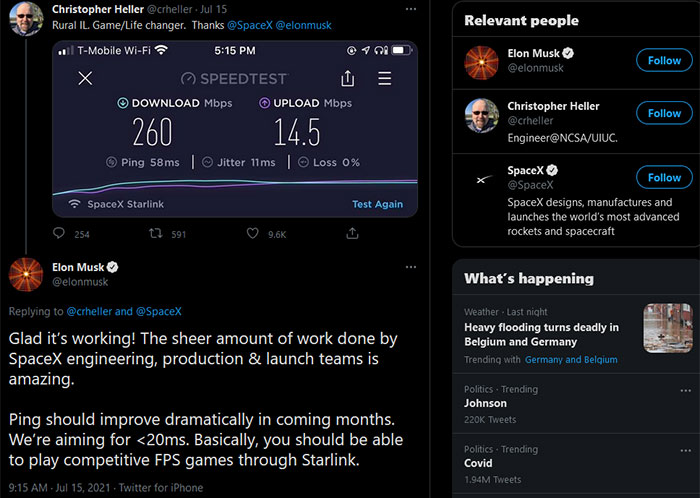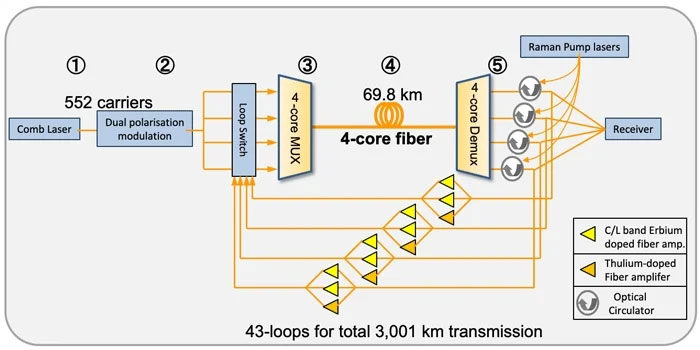Starlink pings
HEXUS reported upon the laser crosslink upgrades to the Starlink satellite constellation back in January this year. That upgrade meant that Starlink subscribers could enjoy better coverage and reliability, with future connections touted to be as fast as 10Gbps. This improvement came very shortly after the first UK customers received Starlink test kits (£500 up front, plus £89pcm) which might be the only fast internet option in some regions.
The likes of Starlink might be a "game/life changer" for some, such as a user from rural Illonios, USA. Elon Musk personally replied to the aforementioned user, via Twitter, to outline some important improvements coming to the service in the "coming months". Musk told the rural customer that "Ping should improve dramatically in coming months. We're aiming for <20ms. Basically, you should be able to play competitive FPS games through Starlink." If you check out the original Tweet that musk replied to, the user stats reported that download speeds were an excellent 260Mbps, but the ping was 58ms. (For reference, I've just tested my 120Mbps fibre internet, and it has a 18ms ping via wireless laptop connection).

Later on in the replies, we got a bit more technical info from the Tesla boss, on the topic of ping times. "More ground stations & less foolish packet routing will make the biggest differences," wrote Musk. "Looking at speed of light as ~300km per millisecond & satellite altitude of ~550km, average photon round-trip time is only ~10ms, so a lot of silly things have to happen to drive ping >20ms."
Japanese fibre zings
Back in August 2020, HEXUS reported on the smashing of the world record internet speeds by researchers at University College London (UCL). The researchers used existing fibre optic cabling for world record-breaking 178Tbps data transfers.
Now, researchers in Japan have broken UCL's record by quite a margin. A team led by physicist Benjamin Puttnam of Japan's National Institute of Information and Communications Technology (NICT) used a coupled four-core optical fibre cable (different to the current standard single cable) plus wavelength-division multiplexing technology to demonstrate 319Tbps data transfers over a distance of 3,000km. Yes, it uses quad-cables, but they are claimed to be the same diameter as standard single-core optical fibre – so OK for existing infrastructure upgrades.

A report published by Science Alert says that the cables require new technology amplifiers, using thulium and erbium rare earth reliant components, every 70km. The Japan-based researchers are continuing to refine the cabling and supporting tech like amplifiers to increase both transmission capacity and range.






